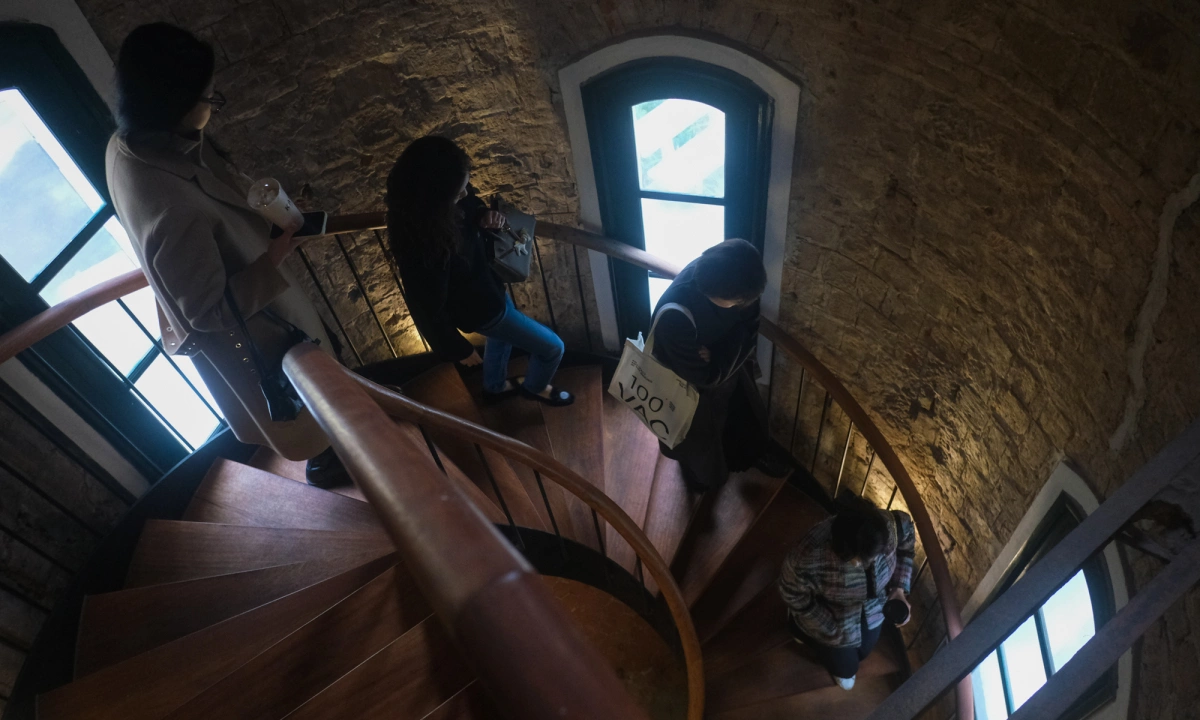Located at 49 Tran Hung Dao Street in Hoan Kiem District, the French-style villa is officially open to visitors after a year-long restoration.
The villa spans a total area of 993 m2, with 400 m2 dedicated to floor space and the remainder comprising grassy areas and walkways.
According to the Hanoi People's Committee, the city manages 1,216 old villas built before 1954.
Constructed during the early 20th century in the French colonial period, the villa is expected to become a cultural exchange center. The house is the first of its kind to be restored and open to the public.
On the afternoon of Jan. 27, visitors began assembling outside the former home at 4 p.m.
The number remained modest, with fewer than 20 people exploring it at any given time.
Nguyen Huy Trung Dung, a nearby resident and photographer, said he visited both in the morning and afternoon to gain deeper insights. He has maintained a keen interest in the villa, and fascinated by its architectural history.
An has an interest in culture and history, particularly in old buildings. Ever since discovering the ongoing restoration of this ancient villa, An awaited its opening date. He and his wife previously toured various French-style buildings across Vietnam, including Hanoi, Hai Phong, and Da Lat.
"I have been here many times, but not until now have I had the opportunity to visit inside. The villa has a nostalgic Hanoi vibe," he said.
An suggested that management could enhance the visitor experience by incorporating videos and offering souvenirs.
Inside the villa's rooms, visitors can view documentary photos and information boards related to the villa and old Hanoi life.
Tourists can also admire pictures and artifacts related to the building, including bricks, insulating porcelain products, and iron racks embedded in the wall.
The interior of the villa remains sparsely furnished, with only photos and simple decorations such as flower vases.
Trung Mai, who was involved in the villa's restoration, shared stories about the antiques in the villa during an introduction to the site on Jan. 27.
He said he wished that visitors might alter their perspectives on cultural heritage. As he understands it: "heritage doesn't always have to stay unchanged; it also needs a fresh start."
Within the villa, photos are accompanied by explanatory notes, such as a central photograph depicting Hanoi streets from a bygone era. Adjacent to it on the left, a painting of a woman with details about her hairstyle, shoe, and scarf.
On the afternoon of Jan. 27, Hedvig Liestoel from Norway and Muchun Mack Niu from New York explored the villa together.
"This building is located in a unique location of Hanoi, and it has an interesting historical architecture," Mark said.
He was also impressed by the preservation of original antiques.
Quynh Huong, from Hai Ba Trung District, has been familiar with this villa since childhood and still gazes at the old tree in the backyard every time she passes by. Recalling her youth living on the second floor of a villa in Lo Duc Street, she felt a sense of familiarity upon seeing the stairs and wooden floors again.

















